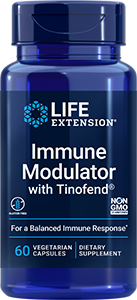Meta-analysis associates supplementation with omega-3 fatty acids with lower risk of death from all causes over follow-up
Tuesday, February 4, 2014. The results of a meta-analysis published on December 25, 2013 in the journal Nutrition, Metabolism and Cardiovascular Diseases reveal a reduction in the risk of dying from cardiac or any other causes among coronary heart disease (CHD) patients supplemented with omega 3 fatty acids in trials ranging from less than three months to 4.6 years.
Researchers at China's Nanjing University selected fourteen clinical trials involving a total of 16,318 participants randomized to receive a placebo and 16,338 subjects given the omega-3 fatty acids EPA and/or DHA that evaluated the supplements' effects on cardiovascular events, cardiac death, sudden cardiac death or death from any cause. Trials included patients with established coronary artery atherosclerosis, angina, coronary artery disease, myocardial infarction and ischemic heart failure.
Participants assigned to omega-3 fatty acids demonstrated a trend toward reduction in the risk of major cardiovascular events over the studies' follow-up periods in comparison with the control subjects. A separate analysis limited to those diagnosed with coronary atherosclerosis (before any occurrence of heart attack or heart failure) uncovered a 51% reduction in the risk of major cardiovascular events in association with omega-3 supplementation compared to placebo. Additionally, supplementing with a higher dose of omega-3 (more than 1 gram per day) was associated with a 22% lower risk of major cardiovascular events. Those who received the fatty acids had a 13% lower average risk of dying from cardiac causes, a 14% lower risk of sudden cardiac death and an 8% lower risk of death from any cause over follow-up in comparison with subjects who received a placebo.
"An impressive feature indicated by our meta-analysis is that omega-3 PUFAs supplements in patients with CHD is associated with a significant reduction of the risks of death from cardiac causes, sudden cardiac death and death from all causes," Y. T. Wen and coauthors write. They remark that the benefits of omega-3 fatty acids in coronary heart disease include improvements in lipids, blood pressure, cardiac and vascular function, prostanoids, coagulation and immunological responses, and recommend further clinical investigations.
|
 |
What's Hot
In an article that appeared online on February 6, 2013 in the journal Kidney International, researchers from Indiana University School of Medicine in collaboration with scientists from Massachusetts General Hospital report an association between higher levels of long-chain omega-3 fatty acids in early kidney dialysis patients and a reduced risk of sudden cardiac death, the leading cause of mortality in this group.
Allon N. Friedman, MD and his colleagues compared omega-3 blood levels of 100 patients who underwent sudden cardiac death within the first year of dialysis to levels measured among 300 survivors. A declining risk of death was observed in association with increasing levels of omega-3 fatty acids, with those whose levels were among the top 25 percent of subjects having an 80 percent lower risk than those whose levels were lowest.
"We found that higher levels of omega-3 fatty acids in the blood of patients who were just starting hemodialysis were very strongly associated with a lower risk of sudden cardiac death over the first year of their treatment," stated Dr Friedman, who is an associate professor of medicine at the Indiana University School of Medicine's Division of Nephrology.
"The risk of sudden cardiac death in hemodialysis patients is highest during the first year of treatment," he noted. "The annual rate of sudden cardiac death is about 6 to 7 percent, which may even exceed the rate in patients with heart failure. This study is a first step toward identifying a possible treatment for sudden cardiac death in dialysis patients."
"Because omega-3 fatty acids can be obtained from certain foods, such as fish oil, our findings also have important implications for the type of diet we recommend to patients on dialysis," he added. |
 |
Highlight
The Daily Dozen
12 Steps to Achieving Ultimate Health
|
To take the guesswork out of what aging humans should do to extend their productive lives, Life Extension® publishes an annual list of the best-documented nutrients and hormones.
When compiling this Daily Dozen list, the primary factor Life Extension considers is the preponderance of scientific evidence that substantiates the biological benefits of each compound recommended.
Next, Life Extension examines the cost-to-benefit ratio enabling consumers to obtain the maximum degree of protection at a reasonable price. This means that more expensive choices are ruled out if a lower cost item provides a similar degree of effectiveness.
Finally, convenience plays a very important part. Life Extension wants to make sure that consumers obtain the maximum potency available in the fewest numbers of capsules or tablets swallowed each day.
To view Life Extension's top twelve list, visit https://www.lifeextension.com/vitamins-supplements/index.htm |
|
 |
Latest Products |
 |
|
The plant known as Tinospora Cordifolia has a long tradition of use in Ayurvedic medicine.
Tinofend® is a standardized extract of active Tinospora compounds that work synergistically to help maintain the balanced cellular responsiveness, sensitivity and strength of an optimized and properly modulated immune response.
Tinofen® promotes optimal immune health three ways:
- Helps support the activity that regulates immune response and enhances the function of protective cells called macrophages.
- Helps limit the number of eosinophils (type of white blood cell) already within normal range.
- Provides polysaccharides to help optimize the immune system's normal defenses, including neutrophil (type of white blood cell) function.
Tinofend® is a registered trademark of Verdure Sciences, Inc.
|
| |
 |
|
One of the complications many commercial probiotics face is their inability to overcome hurdles in the digestive tract before hitting their target area—an aspect that can greatly limit their beneficial effects. FlorAssist™ Probiotic liquid vegetarian capsules utilize a "dual encapsulation" technology to combat the shortcomings of many commercial probiotics, delivering unprecedented amounts of live bacterial colonies to where your body needs them.
FlorAssist™ Probiotic liquid vegetarian capsules:
- Contain probiotic strains that are acid resistant, protecting them from stomach acid that can destroy the viability of the strains
- Have dual encapsulation technology, keeping the capsule intact longer, and ensuring that the probiotic reaches the small intestine
- Provide a high CFU (colony forming units) of 15 billion per capsule.
|
|
 |
Related Articles
|
|












